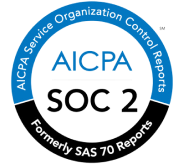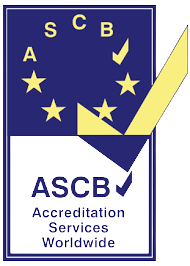Table of Content
- Introduction
- Want to skip it?
- 8 Defined Ways To Use HR Data To Improve Decision-Making Process
- How HRMS Software Facilitates Data-Driven Decision-Making?
- Centralised Data Repository:
- Real-Time Reporting:
- Integration Capabilities:
- Data Visualisation:
- Employee Self-Service:
- Compliance and Security:
- Conclusion
- FAQs
Introduction
HR data is a treasure trove of insights that can revolutionise decision-making processes, leading to more efficient and effective business outcomes. Read about the 8 powerful ways to harness HR data to improve decision-making within your organisation in this post. Additionally, we will explore the pivotal role of HRMS software in facilitating seamless data integration and analysis.
Want to skip it?
8 Defined Ways To Use HR Data To Improve Decision-Making Process
-
Identifying Skill Gaps and Training Needs
HR data offers valuable insights into employee skills, competencies, and qualifications. By analysing this data, businesses can identify skill gaps and determine the specific training needs of their workforce. HRMS software streamlines this process by providing comprehensive reports and analytics, enabling HR professionals to design targeted training programs that align with organisational goals.
-
Enhancing Recruitment and Selection Process
Leveraging HR data can significantly improve the recruitment and selection process. Analysing past hiring data can help identify successful candidate profiles, enabling HR teams to focus on attracting top talent. HRMS software with advanced applicant tracking features simplifies candidate evaluation, ensuring the right fit for open positions.
-
Predictive Analytics for Employee Retention
Businesses can use HR data and predictive analytics to identify potential flight risks within their workforce. By understanding the factors contributing to employee turnover, organisations can implement targeted retention strategies to retain valuable talent. HRMS software equipped with predictive analytics empowers HR professionals to take proactive measures, minimising turnover and associated costs.
-
Performance Management and Employee Productivity
HR data plays a vital role in evaluating employee performance and productivity. Managers can provide constructive feedback and support employees' growth by analysing performance metrics. Integrating HRMS software in performance management simplifies data collection, evaluation, and reporting, leading to more informed decisions about employee development and rewards.
-
Diverse and Inclusive Decision-Making
Incorporating diversity and inclusion data into decision-making processes is crucial for building an equitable and productive workplace. HR data can highlight areas for improvement in diversity and inclusion efforts, allowing organisations to create more inclusive policies and initiatives. HRMS software with customisable reporting capabilities ensures organisations can track their progress and make data-driven decisions to promote diversity and inclusion.
-
Succession Planning and Leadership Development
HR data can provide insights into the readiness of internal talent to assume leadership positions. Through succession planning, organisations can identify potential leaders and invest in their development. HRMS software facilitates the creation of talent pools, making it easier to groom future leaders and ensure a smooth leadership transition when needed.
-
Improving Employee Engagement
Employee engagement data is a powerful indicator of an organisation's health and productivity. Businesses can identify areas that impact employee satisfaction and engagement levels by analysing engagement metrics. HRMS software with sentiment analysis capabilities enables HR professionals to gain deeper insights into employee feedback, driving actionable strategies for improving engagement and overall morale.
-
Data-Driven Workforce Planning
Strategic workforce planning is vital for an organisation's long-term success. HR data can inform workforce size, composition, and skill distribution decisions. With its data aggregation and visualisation capabilities, HRMS software empowers HR leaders to develop data-driven workforce plans that align with business objectives.
How HRMS Software Facilitates Data-Driven Decision-Making?
HRMS software makes HR data accessible, insightful, and actionable. Here are some key features of HRMS software that enable effective data-driven decision-making:
Centralised Data Repository:
HRMS software like uKnowva provides a centralised platform to store and manage all HR-related data, ensuring easy access and secure storage.
Real-Time Reporting:
It generates real-time reports and analytics, allowing HR professionals and decision-makers to stay updated on crucial metrics and trends.
Integration Capabilities:
HR management software can seamlessly integrate with other systems, such as payroll and performance management, providing a comprehensive view of employee data.
Data Visualisation:
HRs use data visualisation tools to present complex data in easily understandable charts and graphs, enabling better decision-making.
Employee Self-Service:
Employees can access and update their information when implementing HRMS in their teams, reducing administrative burden and ensuring data accuracy.
Compliance and Security:
HRMS software ensures data compliance with privacy regulations and implements robust security measures to safeguard sensitive information.
Conclusion
Utilising HR data effectively is a game-changer for organisations seeking to make informed and data-driven decisions. From identifying skill gaps to workforce planning, from improving recruitment strategies to enhancing employee engagement, HR data offers valuable insights that can transform businesses. Embracing HRMS software as a data management solution further empowers HR professionals to harness the full potential of HR data and drive positive outcomes for their organisations.
FAQs
Q: How can HR data improve decision-making in recruitment?
HR data provides insights into successful candidate profiles and sources of top talent, enabling HR teams to optimise their recruitment strategies and make data-driven hiring decisions.
Q: Can HR data predict employee turnover?
By leveraging predictive analytics, HR data can identify potential flight risks, allowing organisations to implement retention strategies and reduce turnover.
Q: How does HRMS software enhance performance management?
HRMS software simplifies data collection and evaluation, streamlining the performance management process and enabling more informed decisions about employee development.
Q: Can HR data contribute to workforce planning?
Absolutely, HR data informs decisions related to workforce size, skill distribution, and succession planning, which is crucial for effective long-term workforce planning.
Q: What role does HR data play in employee engagement?
HR data provides insights into engagement metrics, helping organisations identify key or critical areas for improvement and develop strategies to enhance overall employee engagement.













